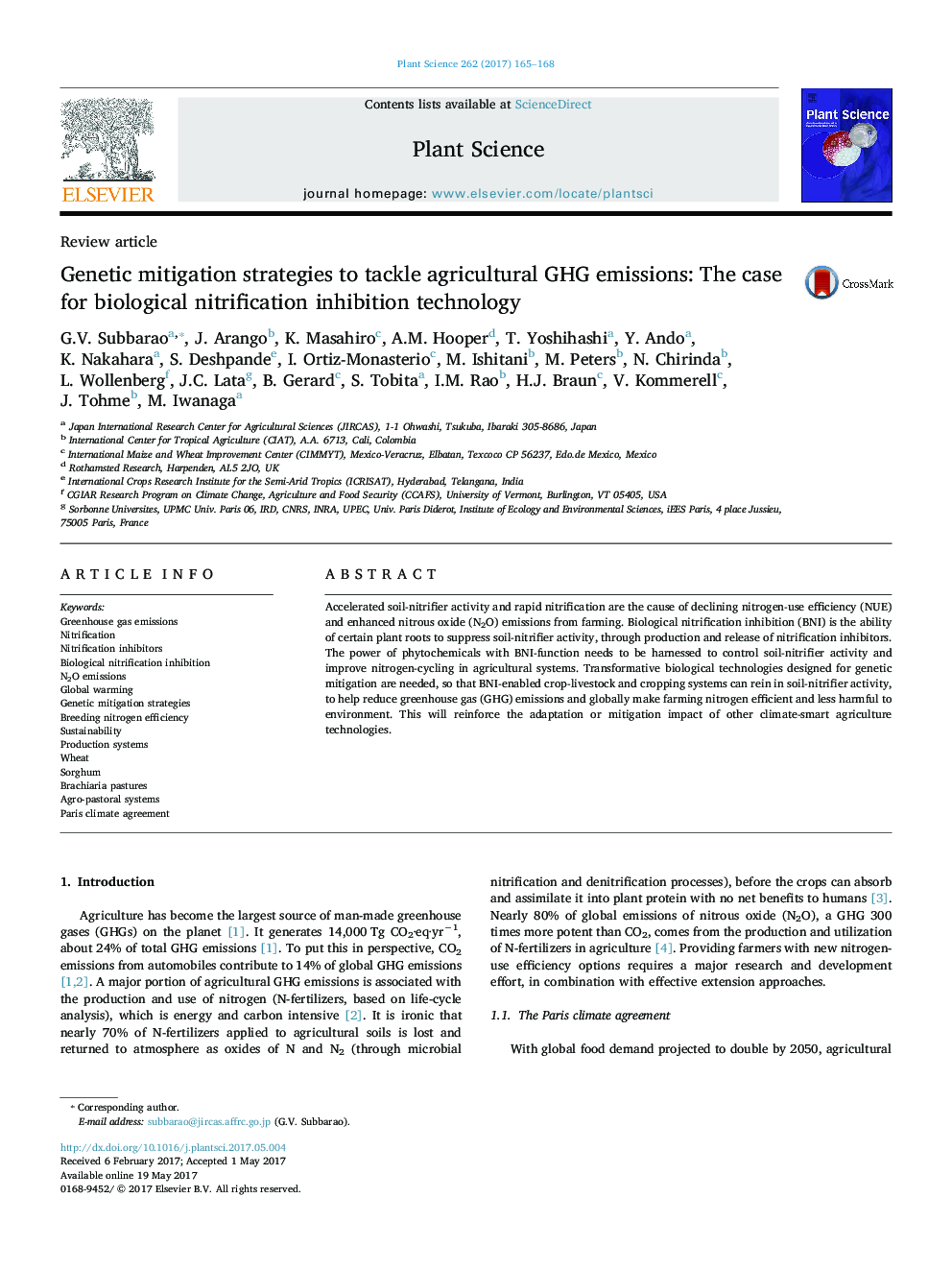| کد مقاله | کد نشریه | سال انتشار | مقاله انگلیسی | نسخه تمام متن |
|---|---|---|---|---|
| 5515731 | 1542027 | 2017 | 4 صفحه PDF | دانلود رایگان |
- Transformative biological technologies need to be developed to reduce nitrification in agricultural systems.
- Genetic mitigation could be one such option where next-generation of crop varieties need to be bred by incorporating traits such as BNI.
- Low-nitrifying production systems to be developed using BNI-enabled crops and pastures.
Accelerated soil-nitrifier activity and rapid nitrification are the cause of declining nitrogen-use efficiency (NUE) and enhanced nitrous oxide (N2O) emissions from farming. Biological nitrification inhibition (BNI) is the ability of certain plant roots to suppress soil-nitrifier activity, through production and release of nitrification inhibitors. The power of phytochemicals with BNI-function needs to be harnessed to control soil-nitrifier activity and improve nitrogen-cycling in agricultural systems. Transformative biological technologies designed for genetic mitigation are needed, so that BNI-enabled crop-livestock and cropping systems can rein in soil-nitrifier activity, to help reduce greenhouse gas (GHG) emissions and globally make farming nitrogen efficient and less harmful to environment. This will reinforce the adaptation or mitigation impact of other climate-smart agriculture technologies.
Journal: Plant Science - Volume 262, September 2017, Pages 165-168
